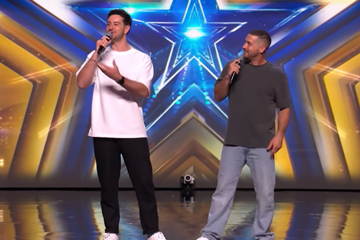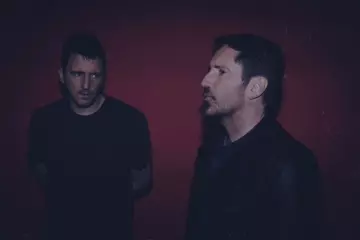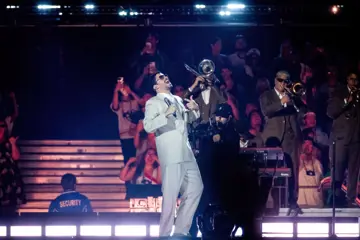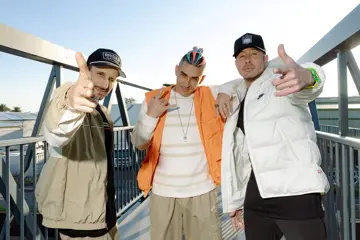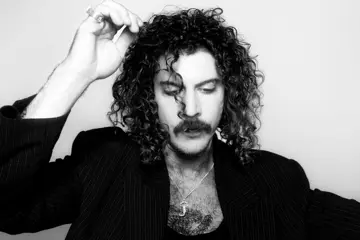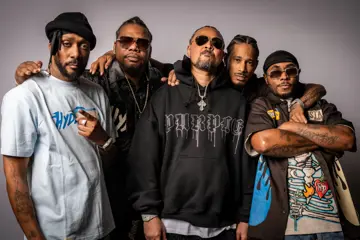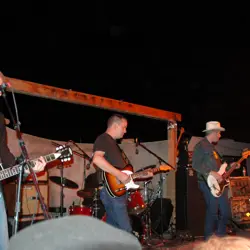 Camper Van Beethoven
Camper Van BeethovenIt's been nearly thirty years since impious rockers Camper Van Beethoven formed in California and quickly made a name for themselves with their unique blend of disparate musical styles – including, but not limited to, punk, country, ska, folk and world music – abetted by their idiosyncratic lyrics and worldview. Their first single, Take The Skinheads Bowling, was unleashed in 1986 and is still a community radio staple to this day, but their initial tenure only lasted until 1990, when they pulled up stumps with five albums to their name.
Eventually, after nigh on a decade of inactivity, Camper Van Beethoven began to sputter back into life, touring for the first time in years in 2002 and then two years later releasing the highly conceptual New Roman Times, an ambitious treatise on the political divisions still rampant in their homeland. They toured extensively for that record album before things basically ground to a halt once more, fettered by families and careers and life in general. Now, after another lengthy break, they return with La Costa Perdida, an album ostensibly celebrating Northern California where the band first coalesced all those years ago.
“We didn't plan for it to be nine years between albums, we were planning on getting it together, but we don't play that many shows and I live on the east coast and everybody else lives on the west coast and Chris [Pedersen – drums] was in Australia, and we just really hadn't got around to sitting around and writing any songs. Now we have,” laughs Lowery of the gap between releases. “We started the record in Big Sur in northern California, on the coast there, which is a long-time hangout for people like Jack Kerouac and Richard Brautigan and Henry Miller, writers and hippies and beatniks – even The Beach Boys hung out there for a while! So we got into this northern California, hippy version of The Beach Boys vibe – that was one of the themes that went through this album. Camper Van Beethoven's a very Californian band, and there was more of a Californian influence on this than usual.”
This wasn't to say that the theme of the album was intentional, unlike their last recording.
“New Roman Times was almost a science fiction, alternative reality thing but this one's not so much a story, rather we picked all of these places along the coast...” Lowery pauses. “Actually, let me be honest about this. We wrote seventeen songs and there's ten songs on the album – part of the way through we realised that a lot of the songs focused on northern California, so for the album we only pulled those ones with a California theme. So in a way it's more of a retroactive concept album. The other half is another album, which we'll hopefully finish later this year.”
Don't miss a beat with our FREE daily newsletter
This communal creative approach for La Costa Perdida meant that it was a very collaborative affair, reflecting the disparate music that they were listening to leading into the recording.
“This album is very collaborative, although all the Camper albums are pretty collaborative,” Lowery explains. “Say Key Lime Pie (1989), the last album before we broke up, was largely written by me and Greg [Lisher – guitar/vocals], but this time the four main players – Victor [Krummenacher – bass/vocals], Jonathan [Segel – violin/keys] and Greg and myself – were all in the same room, not really brining anything in and just making it up on the spot. We felt like we wanted a complete fresh break, and we wanted to make up music that we really wanted to play right then – you can kind of hear what we were listening to in the couple of weeks before we did the writing, because we were just driving around playing some low-key shows in California. I think Jonathan was listening to [1975 Grateful Dead album] Blues For Allah, and then the rest of were listening to The Beach Boys' album Holland (1973), plus some other Grateful Dead stuff and some mellow Neil Young stuff. It was a lot of stoner, mellow stuff we were listening to and that came through. We'd clash things, but we'd mix maybe that Grateful Dead sound with another part of the song that's very punk rock. We've always mixed things together, but in the past we were combining contrasting elements.”
That habit of mixing eclectic music together tended to be quite polarising, especially in the early days when CVB were cutting their teeth in the punk rock scene.
“When we first started it was really polarising,” Lowery laughs. “Our first big break – if you could count it as a big break – was when we only had a cassette album out, and in those days the west coast punk rock bible was Maximumrocknroll, and they reviewed the cassette. And we also sent it around to punk rock labels like Alternative Tentacles, and so Jello Biafra and the Dead Kennedys listened to it and elected to take us on a small tour of California, just a couple of shows. So we played to this total hardcore punk rock crowd, and we weren't real hippies – we were fake hippies who'd played in punk rock bands before – so we played a lot of punk rock covers but slower, in a kind of country or hillbilly style. Either people would like it or they would hate it, but the reason all the ska songs were in our repertoire was if punks started to turn on us then we'd play these really fast ska songs, three or four in a row, and all the punk rockers would skank and be back on our side, and then we'd go back to doing a country version of a Clash song. They either came along with us or they hated us, either was cool.
“But at two of those Dead Kennedys shows, at one we completely pulled it off and they loved us by the end, but at the other one they wanted to kill us – they literally wanted to get onstage and punch us and hurt us. But that's basically how our sound evolved. It was sort of like performance art at first, but eventually it kind of evolved into being serious and having this sound, and we were embraced by the punk rock people and – well, it hadn't been called 'indie rock' yet – but what was essentially that scene.
“The other band that gave us a big leg-up were the Minutemen. The Meat Puppets put us on this show with the Minutemen in Fresno, one of those informal punk rock shows were somebody rents a hall and teenagers come out, so they saw us play there and after that we'd be put together from time to time at their suggestion. We were really given a leg-up by the Minutemen and the Dead Kennedys, and to a certain extent The Meat Puppets too, so we basically paid our dues in the punk rock scene.”



